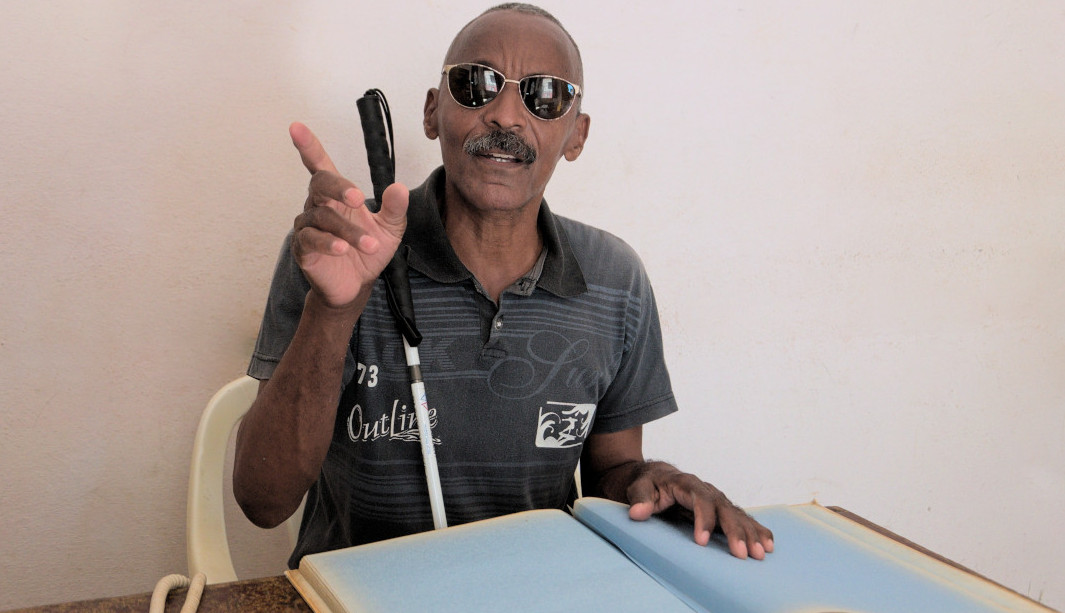CAMAGÜEY.- With Lino Antonio Torres Gómez, a writer who does not "have a name" yet, but has already added awards for his tenths and stories, we talked about his participation as the first guest of the "Writers at Bat" club, by the Camagüey´s writer Pedro Armando Junco, the first Friday of each month at the Vietnam Athenaeum bookstore, at 11:00 am
-Tell me about Lili ...
-Lili from story to story is a book project of 16 stories where each one tries to convey a lesson: solidarity, companionship, knowing how to make decisions.
“It is about a girl of our times who, through the narration of different situations, fosters values that will serve her for the rest of her life. There are those who tell me that it has the form of a novel, because it is like a sequence of the life of that protagonist. She goes through elementary school, high school ... and closes with two stories: one when she jumps into youth and falls in love and gets married; the other when she reaches adulthood.
“They are children's and young people's stories, rather dedicated to the public from nine to 18 years old, the one that includes a part of the childhood and adolescence stage. It is that when you think about children's literature, one imagines that it is for children of four or five years old and for them it is written in a different way”.
-Why the issue of values?
-In children's literature, regardless of whether it is written for children to have fun (especially), there must be teaching messages. Children have to learn to cope in life; they have to be helped to form their character, to relate to the elderly and their age, to learn to listen for their better development. That was what motivated me. In addition to language management, to seek that the child plays with the text.
-Any special reason for choosing Lili’s name?
-No, it is an easy name for children and it gives me the feeling of sweetness. It is also because of the derivation of the flowers and the lilac color, and especially because it had to be a short name that stuck quickly to the little ones.
-Have several of those stories been awarded?
-Yes, independently. The first of the book: The sweetest girl in the neighborhood, won an award in the last provincial literary meeting of houses of cultures and Lili and Gomino was First Mention in the national meeting of writers of the National Association of the Blind (Anci) in 2017.
"It also received the Third Prize in the most important literary meeting of the Anci, the Luis Braile national literary contest, of 2019, Diary from an egg, which had already been awarded in the 2018 provincial meeting of houses of cultures."
-But this is not your only project ...
-It's not the only book I have, but I have put everything to it because I like to write to children. In addition, you see them at the Fair and they are the ones who buy the most and if one knows how to lead them through the correct paths through a book they assimilate a lot.
“It is important to write to children in these times of so much technology in which many say that paper books tend to disappear. I do not believe it that way. The relationship established with a printed book is different from the digital one, and to the children, to the children of our land, we have to reach them with our idiosyncrasy”.
-Tell me about your other projects.
-People know me more for poetry, I love it! And that's another project. I really like the sonnet, the tenth that cannot be missing in someone who writes poetry in Cuba, and I am dabbling in free poetry, the one that has no rhyme and I call it contemporary poetry. It would be necessary to see how all this comes together in the book because they are different aspects.
“I also have the other story project that consists of about 12 stories but for adults. If in the case of Lili ... it is sequential, in this other I did a work of characters or themes by trilogies. Also in this case some have been awarded”.
Lino is talented. His maturation is very modestly grateful to the literary workshops: “I am a workshop assistant at the Ignacio Agramonte culture house, from the Rubén Martínez Villena literary workshop. Technically I have been trained as a writer there, most of the time with Evelyn Queipo, and later, when she took over the direction of the Ácana publishing house, Xiomara stayed as our advisor”.
Meanwhile, in the middle of his work, he does not stop writing, and he hopes to see the dreams of a book with all the laws come true and imagine the title on the cover, the size of the letters, the arrangement, the colors. ...
- Translated by Linet Acuña Quilez

